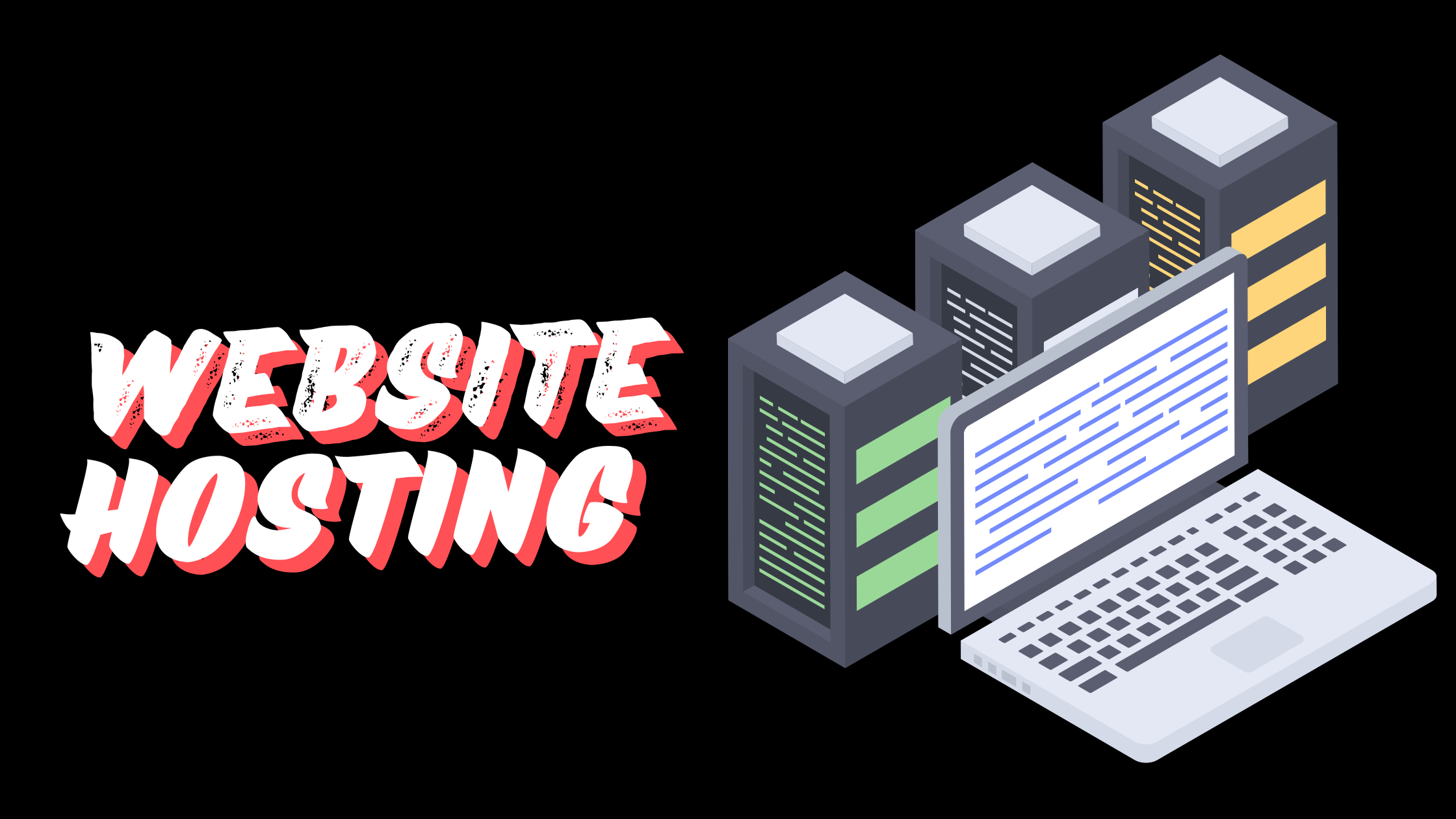Table of Contents
1. What is Website Hosting?
At its core, website hosting is a service that allows individuals and organizations to make their website accessible via the internet. When you create a website, it contains various files, such as HTML, images, videos, etc. These files must be stored somewhere and delivered to users when they access your website. Hosting companies provide the technology and infrastructure that enables this by storing your website’s data on their servers.
Without hosting, your website wouldn’t be available for anyone to view or interact with.
2. How Does Website Hosting Work?
Website hosting involves storing your website’s data on a server. When someone types in your domain name into their web browser, the browser requests the data from the server where your website is hosted. The server then delivers the requested files to the user’s browser, and your website is displayed.
The key components involved in website hosting are:
- Domain Name: The unique address users type to access your website (e.g., www.example.com).
- Server: The physical machine where your website’s files are stored.
- Hosting Provider: The company that manages the server and provides hosting services.
3. Types of Website Hosting
a. Shared Hosting
Shared hosting is the most basic and cost-effective form of hosting. Multiple websites share a single server, and resources like bandwidth and memory are allocated to each website. It’s ideal for small businesses or personal websites with low traffic.
Pros:
- Affordable
- Easy to set up
- Requires minimal technical knowledge
Cons:
- Limited resources
- Performance can be affected by other websites on the server
b. VPS Hosting
VPS (Virtual Private Server) hosting gives you a dedicated portion of a server, though you’re still sharing it with other websites. It offers better performance and more control than shared hosting.
Pros:
- More control over server settings
- Scalable resources
- Better performance than shared hosting
Cons:
- More expensive than shared hosting
- Requires some technical knowledge
c. Dedicated Hosting
With dedicated hosting, you have an entire server dedicated to your website. It offers the best performance, security, and control but comes at a higher cost.
Pros:
- Full control over the server
- High performance
- Customizable according to needs
Cons:
- Expensive
- Requires advanced technical skills
d. Cloud Hosting
Cloud hosting is a newer form of hosting where your website is hosted on multiple servers in the cloud. This ensures high availability and scalability since resources can be adjusted as needed.
Pros:
- Scalable
- High uptime and availability
- Pay for what you use
Cons:
- Can become costly
- Technical knowledge needed for managing complex setups
e. Managed Hosting
Managed hosting refers to a service where the hosting provider takes care of server management, maintenance, security, and updates. This is ideal for businesses that want to focus on their core operations without worrying about server issues.
Pros:
- Managed by experts
- Hassle-free
- Ideal for businesses with limited IT resources
Cons:
- More expensive than unmanaged hosting
- Less control over server settings
4. What Features to Look for in a Website Hosting Provider?
Before choosing a hosting provider, it’s essential to evaluate the features they offer:
- Uptime: Look for providers that guarantee at least 99.9% uptime.
- Customer Support: 24/7 support is crucial, especially for businesses.
- Security Features: SSL certificates, firewalls, and daily backups ensure your website’s security.
- Storage and Bandwidth: Make sure your hosting plan can handle the traffic and data storage needs of your website.
- Scalability: As your website grows, you may need more resources. Ensure your hosting provider offers scalable plans.
5. Importance of Uptime and Reliability
Uptime refers to the amount of time that your website is online and accessible. Downtime can result in lost visitors, reduced revenue, and a poor user experience. Reputable hosts will guarantee uptime and provide monitoring to ensure your website remains accessible.
6. Free vs Paid Hosting: Which One to Choose?
Free hosting may be tempting, especially for beginners, but it comes with limitations:
- Limited resources: Free hosts often cap bandwidth and storage, limiting your website’s performance.
- Ads: Many free hosting providers place ads on your website.
- Lack of customer support: Paid hosting usually includes round-the-clock support, while free hosts may offer minimal help.
7. The Best Website Hosting in India
India has a wide range of web hosting providers catering to different needs. Some of the best website hosting in India include:
- Hostinger: Known for its affordability and speed.
- Bluehost India: Popular for WordPress hosting.
- A2 Hosting: Offers speed-optimized hosting plans.
External Links:
8. Free Website Hosting in India: Options & Limitations
If you’re just starting, free hosting might seem appealing. In India, there are several providers offering free website hosting in India, but they come with restrictions.
- 000WebHost: Offers free hosting but with limited bandwidth and storage.
- InfinityFree: Free, with unlimited bandwidth but limited support.
External Links:
9. How to Choose the Right Website Hosting for Your Needs?
When choosing the right hosting for your needs, consider:
- Purpose: If you’re building a personal blog, shared hosting may suffice. For a growing business, you may need VPS or dedicated hosting.
- Traffic: High-traffic sites need robust hosting solutions with higher bandwidth.
- Budget: Free hosting may be suitable for beginners, but paid hosting offers better features, performance, and support.
10. Factors Affecting the Cost of Website Hosting
The price of website hosting can vary based on:
- Type of hosting: Shared is cheaper, while dedicated hosting is more expensive.
- Add-ons: SSL certificates, backups, and email hosting can increase costs.
- Duration of the plan: Longer-term plans are usually more affordable.
11. Top Hosting Providers Globally and in India
- GoDaddy: Known worldwide for domain registration and hosting services.
- HostGator: Offers a range of hosting solutions, from shared to dedicated hosting.
- SiteGround: Popular for high-performance hosting and excellent support.
External Links:
12. Final Thoughts on Choosing the Right Hosting Provider
Website hosting is the foundation of your online presence. Whether you choose free or paid hosting, make sure it aligns with your website’s goals, traffic expectations, and budget. Evaluate the hosting provider’s uptime, support, security features, and scalability to ensure a smooth online experience.
Choosing the best website hosting in India or globally can make a significant difference in your website’s performance and user experience. Keep your long-term goals in mind, and make a decision that best fits your needs.



